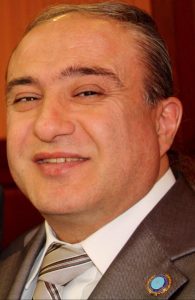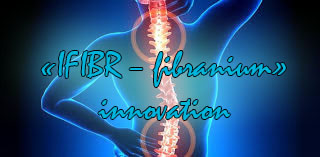PSYCHOPHYSIOLOGICAL ACTIVITIES FOR THE MILITARY PERSONNEL BASED ON THE DISCURSIVE EVALUATION METHOD AS A WAY TO IMPROVE THE QUALITY OF HUMAN FACTOR OF THE MILITARY OPERATIONS

Prof. Arabi Lotfi Sami, PhD, Grand PhD
Annotation. A study of the experience in the psychophysiological activities management in the Armed Forces of the Russian Federation shows that the methodology for organizing of such measures shall be revised. The contradiction that appeared between the need for a qualitative improvement of the human factor and the quantitative parameters of manning the troops can be eliminated if all the work on psychophysiological diagnosis of vocational aptitude and on accompanying the professional activity of military personnel is carried out through the application of the discursive evaluation method.
Keywords: psychophysiology, discursive evaluation method, military personnel
In countries with a developed economy and a high standard of living, with a significant amount of financing for the military budget the human factor is of great importance. And to assess the vocational aptitude and relevance of specialists, involved in the performance of both civil and military tasks, the advanced scientific achievements and approaches are used. Reducing the level of occupational pathology, common sickness rate, injuries and accidents, preserving and strengthening of the professional health, and increasing the career longevity are heavily emphasized [1]. This attitude to the human factor is generated by the objective necessity of increasing labour productivity, the efficiency of the economy, the reliability of training and employment of specialists, the effective application of high technology and expensive equipment, power-consuming equipment, as well as of the modern weapons and military equipment, including hybrid, cold, economic and information warfare means.
For the Armed Forces the urgency of improving the quality of the human factor, including the psychophysiological activities, is more than obvious [2, 3, 4]: military formations are equipped with ever more sophisticated types of weapons and military equipment; systematic transition to the contract system for the recruitment of troops is ongoing. The Russian forces and equipment are being used for the local military missions.
An analysis of the Russian military grouping actions abroad showed that for Russia it is important to preserve the career longevity of the military specialists [5]; the cost of an military specialist error, who is performing both combat and combat-training task, can lead to a combat mission tasks failure, and huge losses in manpower, material and technical and economic resources of Russia [6].
It is the time for the high-tech military collisions. The main way to achieve the goals of such wars is the remote contactless impact on the enemy with the massive use of high-precision and long-range weapons from the air, sea and space. This tendency became clear during the armed struggle in Syria.
The war in Syria shows the importance of information confrontation. There is a need to have Special Forces capable to fight off the information attacks and also to define and execute a set of combat missions of defensive and offensive nature in the sphere of information confrontation. In addition to the Special Forces there shall be the means of information confrontation. Of the same importance is the psychophysiological training of military personnel for the high-tech combat and information confrontation.
An important feature of the high-tech collision is that military specialists should be adequately trained, equipped with all types of security and have the readiness to perform professional duties in the extreme conditions that threaten their life and health [7, 8]. This increases the requirements for the selection, training and professional employment of military specialists [9, 10, 11].
The analysis of the selection system, the support of vocational training and the employment of military specialists helped to reveal a number of imperfections in the level of qualifications, organization and activity maintenance of military personnel.
At this conjuncture, one of the measures to improve the quality of training and employment of military specialists is to conduct the psychophysiological activities for the military personnel. This is a way to improve the quality of the human factor in the military operations in the local conflicts.
I suppose that the psychophysiological activities (introduced into the training and employment of the military specialists) as a system of organizational, medical-physiological, psychological, and pedagogical measures will help to increase the professional efficiency of the military personnel, to ensure the reliability of professional activity, to optimize the process of adaptation to military service, to improve professional health and longevity of the military personnel.
My goal is to develop the content of te psychophysiological activities in the Armed Forces of the Russian Federation, to prepare the scientific and methodological justification for the promising areas of psychophysiological research.
Analysis of the current scientific experience [12, 13] made it possible to disclose a discursive evaluation method as a methodology for the development of the content of psychophysiological activities [14].
The main point of the discursive evaluation method is the organization of the Social Credit feedback in the form of visualization of the mass estimates on a whole set of scales (scales of harm, proper behaviour, emotional, ethical, group assessments of the personality, etc.) in the management of the training and employment of specialists in real time in local or global information environments.
The discursive evaluation method is based on the procedures of mass evaluation and the discourse from the position of the ecological imperative, which denotes the norm and value of the behaviour of the assessment and discourse participants.
The ecological imperative as an ecological norm and moral value concerns any human activity. Its unconditional priority is not harming yourself, others or nature [15].
The ecological imperative (EI) is an unconditional and universally recognized principle of behaviour. It defines the limits in the interaction of a person with himself/herself, others and the environment (nature). These limits shall not be broken neither by a person nor by humanity, because the ecological imperative itself is a natural and generally recognized norm of behaviour.
The natural and recognized norm of behaviour is set by the global ecological principle (GEP) “do not harm”. A norm is what society ascribes to any person, as well as to all people. From the global ecological principle (GEP), a global moral principle (GMP), or global ethical principle, is derived. It means that a person should behave in a way that does not harm.
GEP (global ecological principle) forms the basis for the universal and unconditional norm of human and social behaviour – “do not harm”.
GMP (global moral or ethical principle) forms the basis for the universal and generally accepted value of a person and society – to behave in a way that does not harm oneself and others.
GEP and GMP constitute the ecological imperative (EI), the essence of which is connected with the rule of “Three Y” – do not harm yourself, your neighbours, and your environment.
EI → GEP, GMP
The degree of harm is assessed in a discursive procedure (the discursive evaluation method – DEM).
DEM (discursive evaluation method) has the estimates on a wide range of scales. The value of the DEM (discursive evaluation method) is that it is based on an ecological imperative, approved by the absolute majority of people.
DEM → mass estimation and discourse procedures
(EI → GEP, GMP)
DEM features:
based on the ecological imperative;
ideologically neutral;
it does not pretend to be true, but it allows to look for ways to truth;
balances solidarity and justice in a person and society;
not lethal;
humane, gently keeps from harmful and evil acts.
The measure of harm is determined by a discursive evaluation procedure.
As a result DEM:
allows you to adjust specific behaviour;
ensures inclusion in the discourse and evaluation for all the stakeholders;
guarantees a communicative balance in the evaluation and discussion of evaluation – the voices and argumentative practices of all persons are equal.
The use of the discursive evaluation method makes it possible to find the optimal management decision in determining the content of psychophysiological activities in the process of training and professional employment of military specialists.
The discursive evaluation method allows to significantly improve the quality of professional selection and support of military professional activity. It can be used directly for studying military professional activity, military vocational aptitude, military professional compliance, efficiency and health of military personnel, and serve as a methodological basis for further psychophysiological research.
Participation of military personnel in discursive evaluation procedures made it possible to observe the improvement of the physiological, psychological and socio-psychological conditions of military specialists.
Social Credit feedback and visualization of group or mass assessment allows to strengthen stability of the physiological, psychological and socio-psychological characteristics of the functional state of military specialist. It is also the most model way of ensuring the reliability of professional training and the military specialists employment.
Continuous diagnosis and assessment of harm from social factors affecting the training and employment of military specialists, allows to establish quantitative criteria for the professional health of military personnel and to carry out the necessary activities of psycho-physiological support with the prescription of adequate corrective measures.
The use of the discursive evaluation method in the content of psychophysiological activities during the process of training and employment of military specialists ensures effective military personnel professional activity.
In conclusion, it should be noted that the analysis of theoretical views, applied psychophysiological studies shows that the discursive evaluation method has the broadest prospects for use in the psychophysiology of military professional activity.
Participation of military personnel of different levels of management, training, and application of the discursive evaluation procedure allows them to correct their behaviour and self-esteem at the physiological, psychological and socio-psychological levels.
Most of the models of professional psychological selection in the Armed Forces are based on different methodologies and are out-of-date. A serious and large-scale discourse is needed with a mass assessment of all practical issues of mobilization, selection, support and employment of military specialists. According to the experts of the Military Medical Academy named after S. M. Kirov, the predictability of the diagnostic programs is lower than the established standards of the efficiency and in terms of accuracy (<65%), and in terms of reliability (<75%).
The existing batteries of diagnostic tests used in the diagnosis of professional aptitude reflect various scientific schools and cannot be used for the needs of high-tech war.
The development of up-to-date models for the diagnosis of professional aptitude and professional conformity for different categories of military personnel and for different military occupations should be carried out on the basis of a discursive evaluation method. This is a promising area of scientific and methodological support for psycho-physiological activities of professional selection of candidates for military service and support for the training and employment of military specialists.
Psychophysiological activities of professional activity support should include a person in a discursive evaluation procedure as a method of modern diagnosis and correction of professional health. At the same time, the main efforts should be focused on involving military personnel in the military professional discourse and group assessment, which makes it possible to correct the actual functional state of a military specialist, formed in the course of his professional activity.
Participation in the discursive evaluation procedure ensures the stability of physiological, psychological and socio-psychological mechanisms that regulate the functioning of various components of the functional state. This is the most revealing and easily determined characteristic of the working capacity and reliability of military professional activity. Military personnel with higher resistance to external factors, including factors of professional activity, physiological, psychological and socio-psychological nature, more reliably cope with the professional activity duties, spend less time on a sick-leave and do not violate military laws.
The most promising trend of occupational health research is the development of diagnostic and corrective techniques that pattern the discursive evaluation method. Primarily this is the automated hardware-software complexes of group and collective assessments and comments with use of different types of scales.
In the course of my research the methods of psychophysiological correction of the functional state (trainings with the use of the technology developed on the basis of the discursive evaluation method, the methodology of Social Credit feedback and psychotherapeutic methods of rational therapy, active and passive muscle relaxation) proved to be effective in professional health recovery and strengthening. Their application produces an entire positive reaction affecting the physiological, psychological, and socio-psychological levels of functions regulation.
The experience gained in the organization of psychophysiological activities in the Armed Forces of the Russian Federation shows that the existing methodology should be updated. The contradiction that arose between the need for a qualitative improvement of the human factor and the quantitative parameters of manning the troops can be eliminated if all the work on psycho-physiological diagnosis of vocational aptitude and accompanying the professional activity of military personnel is carried out through the practical implementation of the discursive evaluation method.
The implementation of the discursive evaluation method in the scientific and methodological, regulatory and organizational support of the psychophysiological activities requires the introduction of a new academic subject in the educational disciplines on psychophysiology called “Discursive evaluation method in the psychophysiology of professional activity.” The introduction of such subject as a basic one, which can be included in all medical educational disciplines, will help to significantly improve the quality of the human factor, efficiency and reliability of professional activity not only in the Armed Forces, but also in other high-tech industries of the resource-based economy country.
In order to improve the existing methods for ensuring the professional activity of military personnel, to introduce a system of psycho-physiological activities with military personnel, I propose:
To be guided by a discursive evaluation method when conducting scientific research in professional activity.
To include in the discursive evaluation procedure the scales of assessments of the physical, mental, social state of a person, that are developed taking into account the environmental imperative.
To pay particular attention to the development of promising areas of application of the discursive evaluation method and to create closed Social Credit Networks for military personnel, reflecting their relations and status in real time.
To continue the development of promising, mainly non-medicamentous methods of correction of functional states acquired during professional activity with the aim of preserving and strengthening professional health, increasing career longevity associated with the participation of a soldier in local and global discourse-evaluation procedures.
To introduce in the system of closed accounting and reporting the values of Social Credit feedback: individual indicators of physical, emotional well-being, as well as indicators of trust of military personnel to each other, to their command, to the assigned weapons and military equipment, in order to analyse the military personnel relations and to dynamically correct the military command decisions.
To train the physicians-psychophysiologists how to organize a discursive evaluation procedure for the correction of a person’s psychophysiological state.
To train the cadets who study at the doctors and officers faculties, at the faculty of medical management personnel using the discursive evaluation method.
Source of literature
- Berezovskaya, R.A. Professional health of manager / R.A. Berezovskaya // Workshop on the Psychology of Management and Professional Activities, ed. G.S. Nikiforova, M.A. Dmitrieva, V.M. Snetkova. Saint Petersburg Rech, 2001. – pp. 267-275.
- Belevitin, A.B. Ways of psychophysiological support improving for thw professional activity of space vehicles airmen / A.B. Belevitin et al. // Military and Medical journal. 2010. – Vol. 331, №4. – pp. 4-6.
- Blaguinin, A.A. Reliability of professional activity of operators of complex ergatic systems / A. A. Blaguinin. Saint Petersburg Leningrad State University
- Bodrov, V.A. Fundamentals of professional selection / V.A. Bodrov, D.I. Shpachenko // Physiology of labour activity. – St. Petersburg: Science, 1993. pp. 426-466.
- Medvedev, V.I. The doctrine on adaptation and its implications for military medicine: Act Speech / V.I. Medvedev. JL: Military Medical Academy named after S. M. Kirov, 1983. – 24 p.
- Sirotin, O.A. Experimental study of the psychophysiological nature of emotional stability: based on the materials of the study of highly qualified wrestlers: author’s abstract from a thesis on degree of Master of Psychological Sciences / O.A. Sirotin. – Moscow, 1972.-18 p.
- To the history of domestic aviation psychology. – Moscow: Science, 1981. -320 p.
- Mints, S.E. On vocational aptitude for service as a pilot on the basis of statistical data and psychotechnical tests / S.E. Mintz // bulletin of Air Forces 1923. № 3. – pp. 95-99.
- Medvedev, V.I. Functional states of a person / V.I. Medvedev // Physiology of labor activity. Saint Petersburg Science, 1993. – pp. 25-61.
- Kulganov V.A. Medical and psychological support of the educational process in military universities: Teaching and methodical manual. St. Petersburg, A.F. Mozhaysky Military-Space Academy, 1994. – 230 p.
- Methods of military professional psychological selection: Teaching and methodical manual. / Ed. G.M. Zarakovsky, V.I. Lazutkin. Moscow: Military Publishing House, 2005. – 528 p.
- Chigirev V.A., Selegen V.P., Kryukov M.P. Theoretical bases and methods for improving the management of the military specialists training. – Moscow, USSR Ministry of Defense, 1990.
- Yunatskevich P.I. Information war: the methodology of the asymmetric response of Russia, NKVKG, 2012. – pp. 1-3.
- Yunatskevich P.I. Prevention of social disasters. Discursive evaluation method. St. Petersburg, International Academy of The Social Technologies, 2018. – p. 1-8.
- Yunatskevich P.I. The ecological imperative as the basis of the discursive-valuation method of Professor Chigirev V.A. – St. Petersburg, International Academy of The Social Technologies, 2018. pp. 1-4.



